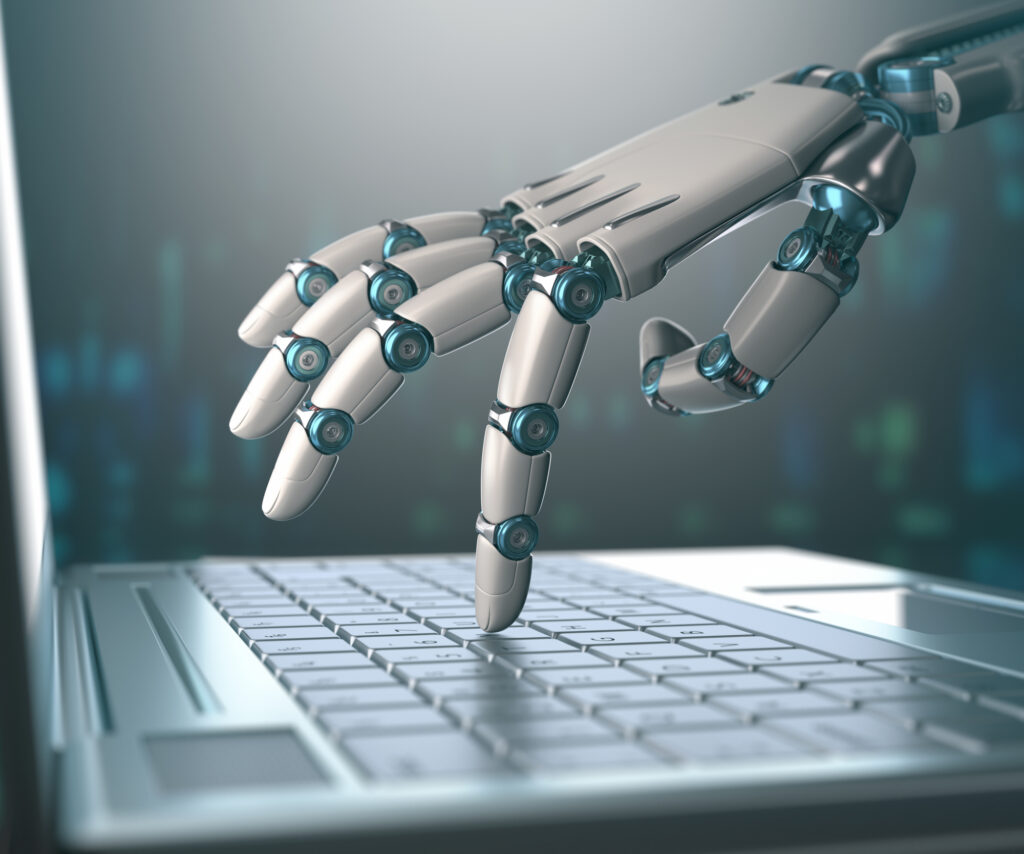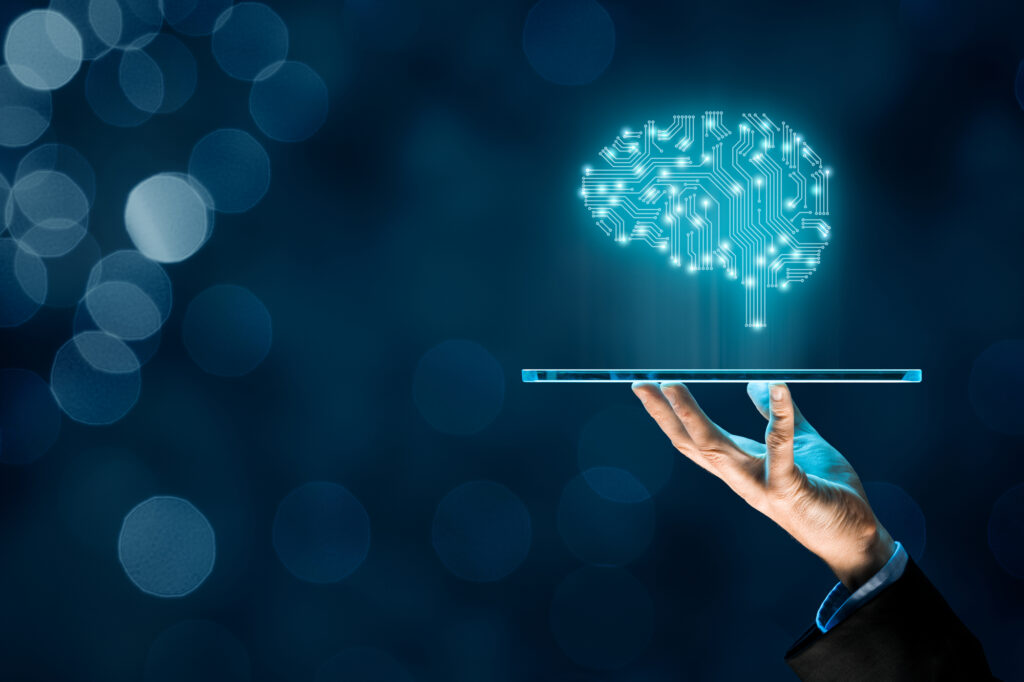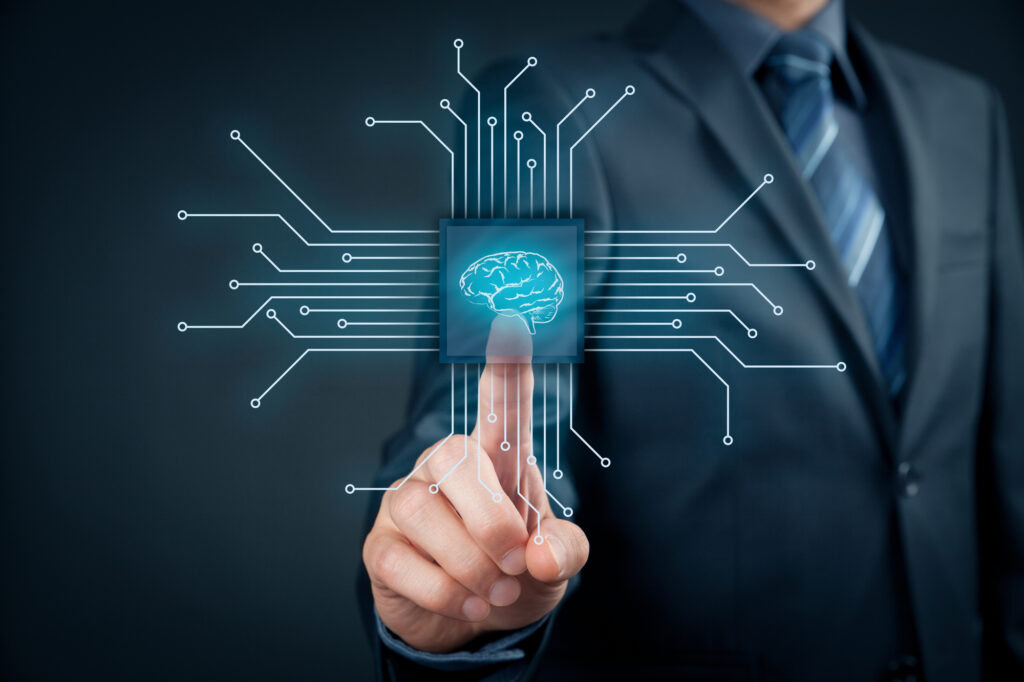Artificial Intelligence is becoming more important in the digital world. This includes the world of marketing and advertising. AI is not the bad sci-fi of the 60s with robots. It’s much more than that.
AI is a general term that covers a wide range of technologies and approaches that “think” as humans. Many technologies that you are already familiar with, like voice recognition and chatbots, already incorporate AI.
We’ll explore some of the most fascinating applications and elements of AI, and why they’re about to be incorporated into almost all aspects of digital marketing.
Machine Learning
Machine learning is an AI technology that does exactly what its name suggests: it’s a method by which machines can “learn” for themselves, using previous data. It can be used in a variety of marketing applications, including ad-targeting, lead generation, and search engine optimization.
This part of AI is the foundation on which machines can start making more decisions about business. Thus, business owners and workers will theoretically have more time to concentrate on human, creative, and financial aspects of marketing and business activities. Digital personal assistants are a good example of how to make decisions in this context.

Marketing is increasingly focused on consumer behavior
AI is about data-driven marketing and decision-making and is used in this way to integrate data across platforms.
Platforms are collecting and storing all types of analytics today as part of analyzing customer patterns to develop automated systems, and customer profiles for targeting specific markets. Shortly, computers will increasingly be in charge of making bigger and larger decisions.
The ability to build copy that is tailored to the voice of customers they observe online will allow them to perform their outreach strategy.
Moreover, the consumer will be more likely to hand over their buying decisions (perhaps unknowingly) to robots that already have an idea of what they want, their previous searches, and their preferences.
Insight Integration
AI can be used to collect and integrate data from various types of software. It will become more powerful in targeting and personalizing digital advertising campaigns by analyzing customer avatars and purchasing journeys as it is further developed.
Meta-analysis allows AI to capture and analyze data in a much more complex way than we currently do, using only tools that are geared toward a single channel (think Facebook Insights). This allows for automations in innovative ways we cannot possibly imagine.

Semantic Search
Semantic search is based on machine learning and meta-analysis, as discussed above. It allows machines to understand the context of user searches to provide customized results. AI can achieve this by learning more about the context of search patterns and phrases. It can also understand complex and detailed relationships between data sets, so, for example, it could incorporate a user’s history of searches into the results.
What does this mean to SEO? This means that searches are becoming more complex, and may include, for example, secondary keywords or long tail keywords. Semantic search is more about understanding the reason a person searches for something than simply showing what they’re searching for.
Content Curation and Creation
AI is already being used in several programs, such as WordSmith. AI can be used to gather and report on data such as sports, market information, and finance. AI can curate content to be personalized for each visitor. This type of technology is used when an ecommerce site shows you “similar” products that you may like.
The AI can also be used to provide suggestions based on the knowledge it has gained. It will also be capable of writing dynamic emails that are tailored according to the preferences of subscribers.
Speech Recognition and Voice Search
AI can handle different types of searches including voice recognition. They can also integrate different types of search methods to customize the results. Even more interesting is that personal assistants, such as Siri, Alexa, and Google Home (or future versions), can converse with each other. In terms of speech recognition, a report from August 2017 (via Techcrunch), claims that Microsoft’s system had an error rate as low as 5.1%.
Lead Generation
AI is a bit like an automatic recruiter. It can sift through data and find ideal clients, customers, and even co-workers based on the information it has already and the software it uses. It can even predict or rate the hotness of a lead. This can be a great tool for B2B, or even for recruiting, as it saves time and energy by allowing you to focus on other things, such as pitching and making sales calls.
You can already find several tools that help you to do this. For example, Node uses metadata to recommend new clients, and LinkedIn’s Sales Navigator helps you find job leads.

Chatbots
Chatbots, or automated tools, are essentially responsible for interacting with and assisting clients. They can currently do simple things such as answer questions and process orders. Companies of all sizes are using them, and they are becoming more and more easy to integrate into websites.
Facebook’s Messenger app will soon include chatbots. The idea is to allow customers to easily contact a business for customer service issues. Businesses will have access to bots in the future. They have even created a program named wit.ai Bot to serve this purpose.
Automating and Personalizing
Machine learning and artificial intelligence are used to understand buyer behavior and decisions. The more the AI learns, the better advertisers can target their marketing campaigns toward the preferences of consumers.
We are currently doing a lot of “guesswork” in the digital marketing world, constantly testing, adjusting, and experimenting for what we hope will be a more lucrative end. Our analytical tools are much more accurate today than they were during the traditional advertising days, but the ability to use “built-in”, decision-making tools which essentially learn on the fly is ideal for this type of marketing.
AI in digital marketing can be very useful and interesting. It uses large amounts of data, essentially to choose the direction that certain information will go. Ad targeting can benefit from this. We can expect that automation will help optimize B2B as well as B2C.
AI is a topic that every digital marketing specialist should be familiar with
Is AI creepy, or cool? It is becoming increasingly ingrained into our lives, whether we like it or not. It may seem like an invasion of privacy to some, but as a digital marketer, you have to know how to use this technology ethically. AI-directed tools are becoming more and more popular and can be extremely helpful when analyzing and predicting a buyer’s journey.
You don’t need to be an expert in digital marketing to get into it. It’s a complex field that relies heavily on math, but you do need to understand how it’ll be integrated into marketing in the future. You don’t have to be an expert in AI to enter the digital marketing world, but you will need to know how it is shaping the digital market today.